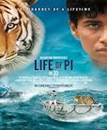题目内容
“Who did this?” asked my teacher. Thirty children tried to think about not only what they had done, but also what our teacher might have found out.
“Who did this?” she asked again. She never became angry, but she was this time. She held up a piece of broken glass and asked, “Who broke this window?”
“Oh, oh,” I thought. I was the one who broke the window. I did not do it on purpose (故意). It was caused by a bad throw of a baseball. Why did it have to be me?
If I admitted (承认) it, I would be in a lot of trouble. How would I be able to pay for a big window like that? “My father is going to get angry at me,” I thought. I didn’t want to raise (举起) my hand, but something much stronger than me pulled it up.
“I did it,” I said. Then I was silent. It was hard enough saying what I had.
My teacher went to one of our bookshelves and took down a book. She then began walking towards my desk. I had never known my teacher to strike (打) a student, but I feared she was going to start with me.
“I know how you like birds,” she said as she stood looking down at my face. “Here is the field guide about birds (鸟类野外指南) that you always check out from our school library. It is yours now. We have got a new one for the school. You will not be punished (惩罚). But remember, it’s only for your honesty.”
I couldn’t believe it! I wasn’t being punished and I was getting my own bird field guide, the one that I had been saving up all my money to buy.
小题1:How did the writer feel when he saw his teacher walking towards him with a book from bookshelves?
| A.Relaxed. | B.Pleased. | C.Frightened. | D.Guilty. |
| A.lend | B.borrow | C.test | D.buy |
| A.The writer’s teacher often hit her students. |
| B.The writer broke the window when he was catching a bird. |
| C.The writer was seriously punished after he admitted his mistake. |
| D.The writer didn’t want to admit his mistake at the beginning. |
| A.he who is honest is wise | B.better late than never |
| C.practice makes perfect | D.a friend in need is a friend indeed |
小题1:C
小题2:B
小题3:D
小题4:A
试题分析:这篇短文中的作者失手打碎了教室的玻璃,一开始不想承认。最后承认了错误,不但没有收到惩罚,反而因此受到了老师的奖励。从而告诉我们诚实人才是聪明人。
小题1:根据She then began walking towards my desk. I had never known my teacher to strike (打) a student, but I feared she was going to start with me.描述,可知选C。
小题2:联系下文from our school library. It is yours now描述,可知此处指的是我一直想借的一本书,故选B,借入。
小题3:根据“Oh, oh,” I thought.……but something much stronger than me pulled it up. 本段对作者心理活动的描述,可知一开始他并不想承认,故选D。
小题4:根据But remember, it’s only for your honesty.”描述,可知作者因为诚实,不但没有收到惩罚,而且收到了奖励,故选A,诚实人才是聪明人。
点评:本文浅显易懂,层次分明,学生很容易把握文章中心内容。答题中注意带着问题阅读短文,一般就能顺利找出答题依据。对于不能直接找到根据的问题注意联系上下文,根据短文中心总结出正确答案。

练习册系列答案
相关题目
